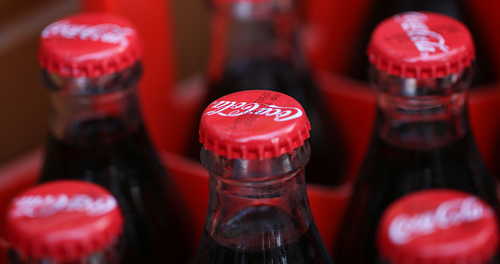Farmer Connect, a tech startup developing farm-to-client traceability tools, has teamed up with the world’s top coffee firms such as Jacobs Douwe Egberts (JDE) and Smucker to apply blockchain to coffee supply chain tracking using the IBM Food Trust Platform, the firm announced on Sept. 18.
A group of global coffee companies aims to launch a blockchain platform to track coffee using an IBM-developed app by early 2020.
According to a press release by Farmer Connect, the startup has worked with global tech giant IBM to build the “Thank My Farmer” app, which provides consumers with detailed data about coffee products, including origin and pricing.
Building on IBM Food Trust Platform
The first version of the app will be available to test users in select markets operated by the group of partners before launching the service to the entire coffee community in 2020, the press release notes.
Big coffee expected to benefit from transparent connectivity
Other participants include Colombian Coffee Growers Federation, ITOCHU Corporation, RGC Coffee, Beyers Koffie and Swiss coffee-trading firm Sucafina. Following the launch of the app, the company plans to expand to other commodities, according to the report.

Rajendra Rao, General Manager for IBM Food Trust, expressed confidence that Farmer Connect will be the platform of choice for the coffee industry. The exec stated that the new blockchain-powered approach targets to support all stakeholders in the industry ecosystem, and both farmers and consumers are expected to benefit from transparent connectivity.
In April, Cointelegraph reported that United States food and drug chain Albertsons Companies has become a client of IBM Food Trust. The platform was first launched for testing in 2016 with Walmart in China. Other food giants such as Nestle subsequently came on board as the pilot program attracted more participants.
Yesterday, Cointelegraph reported on Dutch company Waste2Wear conducting the world’s first exhibition of recycled fabrics, made from ocean plastics, that can be traced using blockchain technology.
Coca-Cola Supply Chain Firm Expands Blockchain Effort to 70 Partners
The IT firm behind Coca-Cola’s bottle manufacturing supply chain processes looks to be getting a taste for blockchain technology.

Coke One North America (CONA) says its pilot project with software provider SAP is now set to be expanded from two to 70 of the manufacturers that deliver the 160,000 bottles Coca-Cola shops daily, Business Insider reported on Tuesday.
The blockchain project promises to improve distribution for the participants, as all manufacturers can access a permissioned blockchain containing each others’ orders, capabilities and requirements. For example, if a bottle maker is short of stock for a looming order, the network quickly provides options for filling shortfall. CONA told BI it hopes to reduce order reconciliation days from weeks to just days.
“There are a number of transactions that are cross-companies and multi-party that are inefficient, they go through intermediaries, they are very slow”, senior manager at Coke One North America Andrei Semenov told BI. “And we felt that we could improve this and save some money.”
The pilot program’s initial positive results meant not only more bottles shipped, but more companies coming to SAP’s platform, as per the report. Semenov said that CONA has its eyes set on working with commerce giants Walmart and Target as a result, though scaling to work with those firms’ supply chains would be a difficult undertaking, he noted.
“What we achieved here with blockchain is creating a document flow across the supply chain”, said Torsten Zube, head of SAP’s Innovation Center Network.
Coca-Cola’s prime competitor PepsiCo also conducted a blockchain trial that the firm claimed in May had raised efficiency by 28 percent. Dubbed “Project Proton”, the supply chain trial was run on Zilliqa’s blockchain platform.

